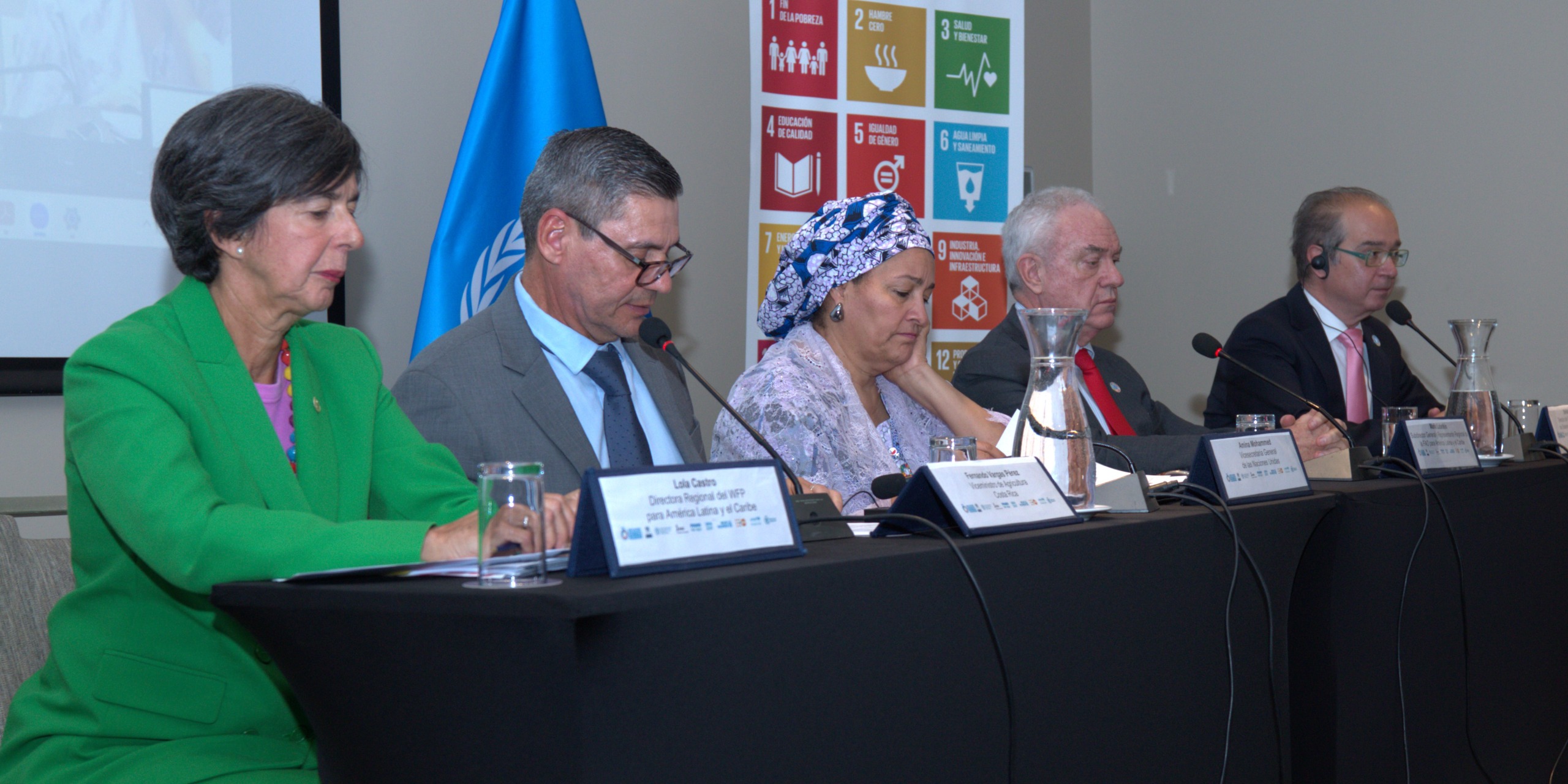FAO warns: We have crossed the halfway mark for the 2030 Agenda, and the need to accelerate our progress is urgent
FAO Assistant Director-General and Regional Representative Mario Lubetkin participated in the United Nations' "Review of Progress in the Transformation of Food Systems" event to evaluate countries' progress in meeting the Sustainable Development Goals.

©FAO/Cristina Arancibia
Santiago, Chile –The event "Review of Progress in the Transformation of Food Systems", organized by the United Nations Food Systems Coordination Center (Hub) in collaboration with the Food and Agriculture Organization of the United Nations (FAO), the Economic Commission for Latin America and the Caribbean (ECLAC), the Pan American Health Organization (PAHO/WHO), the United Nations Economic Commission for Latin America and the Caribbean (ECLAC), the Pan American Health Organization (PAHO/WHO), the Food and Agriculture Organization of the United Nations (FAO) and the World Food Programme (WFP), was held during the Seventh Meeting of the Forum of Latin American and Caribbean Countries on Sustainable Development (FLCLAC), in Santiago, Chile: PAHO/WHO, the World Food Program (WFP), among other UN agencies.
Lola Castro, WFP Regional Director for Latin America and the Caribbean, on behalf of the Food Systems Working Group of the region, and Stefanos Fotiou, Director of the UN Food Systems Coordination Center, opened the event. Amina Mohammed, Deputy Secretary-General of the United Nations, and Mario Lubetkin, Assistant Director-General and FAO Regional Representative for Latin America and the Caribbean, participated in the closing ceremony.
The event was attended by national convenors, UN resident coordinators, and representatives of various stakeholders, and its main objective was to assess the progress made by countries in the transformation of agrifood systems, facilitate the exchange of regional knowledge, and identify emerging patterns and solutions in response to the call for action made by the UN Secretary-General during the UN Food Systems Stocktaking Event (UNFSS+2) held in Rome in July 2023.
The event highlighted the importance of promoting a collaborative and participatory space where countries can share good practices and effective strategies to develop the necessary capacities in the region. The exchange of knowledge and experiences among peers was identified as a fundamental tool to support the transformation processes of food systems at the national and sub-regional levels.
UN Deputy Secretary-General and Chair of the UN Sustainable Development Group, Amina Mohammed, stated: "These meetings are critical to shaping our collective vision for more sustainable, equitable, healthy, and resilient food systems and indicate the acceleration we need to achieve the SDGs by 2030. The network of national conveners is growing; it is stronger every day and is the best asset for the food system summit process in implementing all national pathways.
In his speech, Mario Lubetkin stated: "We have analyzed how the region has made some progress in reducing hunger and food insecurity figures. Our latest estimates show that three million people no longer suffer from hunger. However, we still face important challenges and gaps linked to agrifood systems, which could hamper our ability to respond.
He added: "In this context, the transformation of agrifood systems becomes an immediate and critical need, a process in which investments and political and development agendas must be aligned to accelerate progress towards the Sustainable Development Goals. We have crossed the halfway mark for the 2030 Agenda, so the need to accelerate our progress is urgent."
This regional meeting will serve as preparation for future actions, including COP29 in Azerbaijan and COP30 in Brazil, where the food systems transformation agenda is expected to remain high on the climate and sustainable development agenda.
Lubetkin also moderated Table 2: "SDG 2: Zero Hunger" of the Forum of Latin American and Caribbean Countries on Sustainable Development. During his intervention, he said that it is necessary to prioritize policies and programs that really impact food security and nutrition of people, and for this, it is more relevant than ever to strengthen national and regional coordination mechanisms. "The road to food security and nutrition in Latin America and the Caribbean requires continued commitment and concerted action on multiple fronts to ensure the well-being of present and future generations in the region," he said.
Contact
Maria Elena Alvarez Press and Content Officer [email protected]
